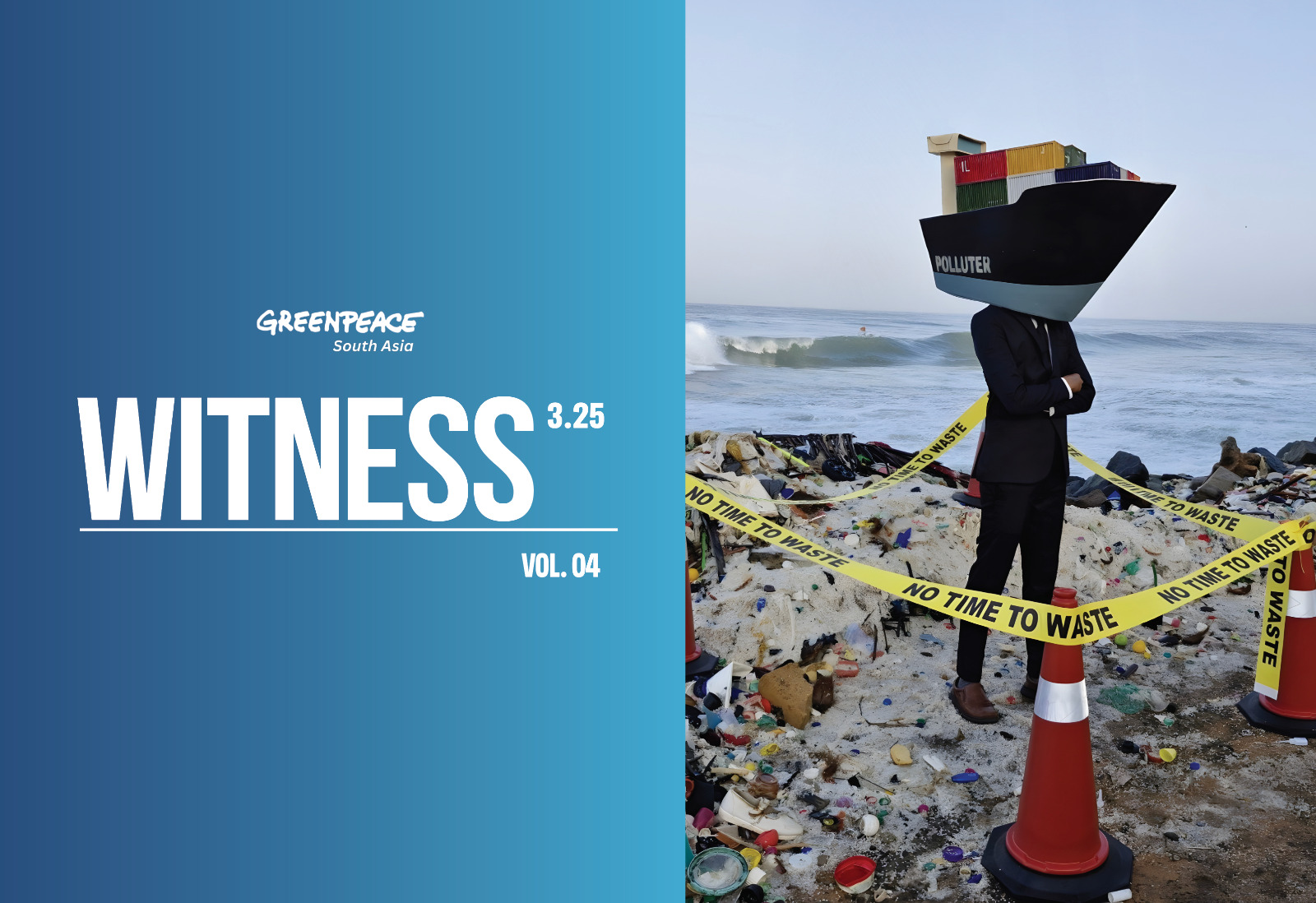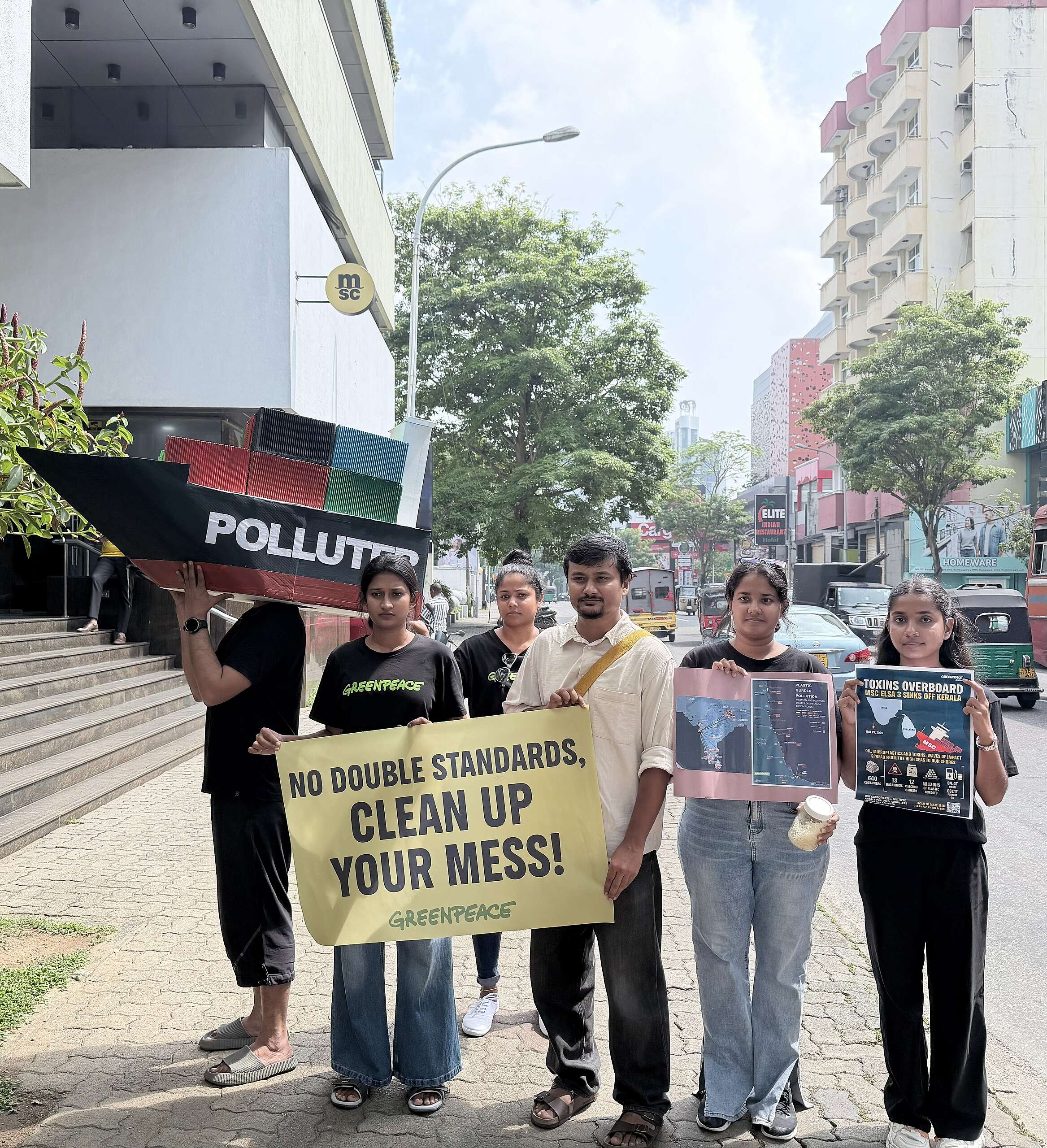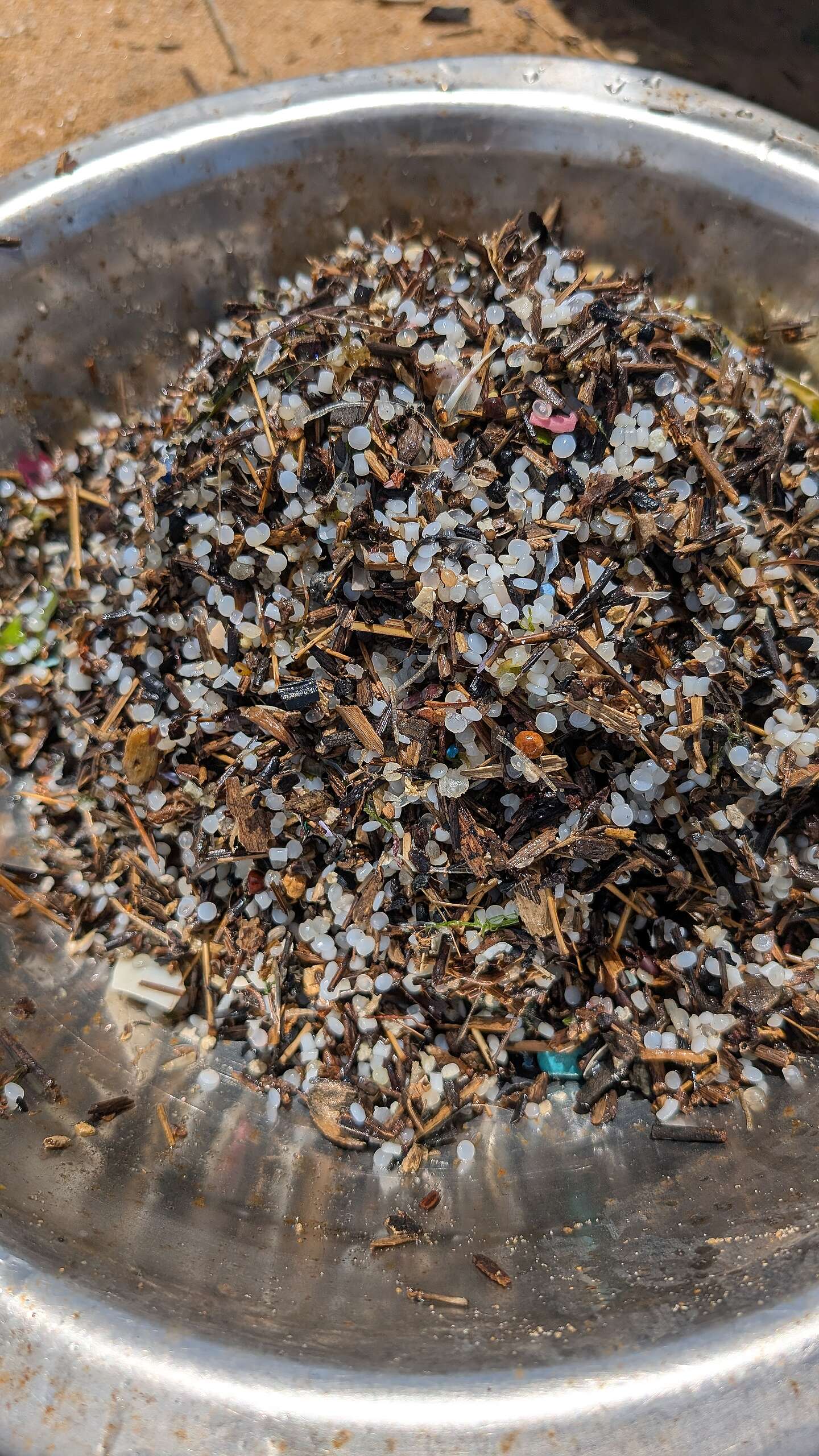On 24 May 2025, the container vessel MSC ELSA 3 sank off the coast of Kerala in one of the state’s most significant maritime disasters in recent history. Carrying over 600 containers, including hazardous cargo like hydrazine, calcium carbide, and large volumes of fuel, the ship capsized just 14.6 nautical miles from the shore. The aftermath saw widespread environmental damage, with debris and plastic nurdles washing up along a 120 km coastal stretch—severely impacting marine ecosystems and small-scale fishing communities.
“Wrecked Futures: The Hidden Socio-Economic Burden of the MSC ELSA 3 Disaster” report presents a case study of Pulluvila village in Thiruvananthapuram, one of the worst-affected areas due to the far-reaching impacts of the MSC ELSA 3 shipwreck on fishing communities in Kerala. Produced by Greenpeace India in collaboration with Karumkulam Grama Panchayat and local civil society groups, the report documents how the disaster has led to severe income loss, rising debts, equipment damage, and a collapse in market confidence. Based on household surveys and community testimonies from 12 coastal wards, the findings reveal that families who were already financially vulnerable have been pushed to the brink, with many unable to afford basic needs like school fees, boat repairs, or daily meals.The report calls for immediate interim relief, subsidies for repairing nets and boats, debt support, and accessible systems for filing compensation claims at the local level. More than just documenting loss, “Wrecked Futures” is a call for justice and accountability—demanding that the voices of Kerala’s coastal communities are not ignored in the courtroom or the policy process.



